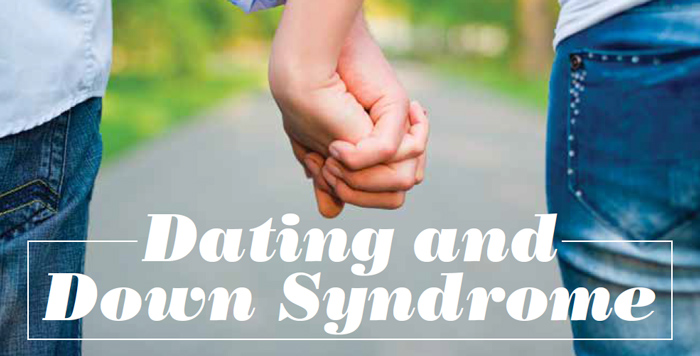Dating and Down Syndrome

Recognizing your child is ready to enter the dating scene isn’t always easy. Noted sexuality educator Terri Couwenhoven helps both children with Down syndrome and their parents navigate these difficult waters.
 This article was published in the award-winning Down Syndrome World™ magazine. Become a member to read all the articles and get future issues delivered to your door!
This article was published in the award-winning Down Syndrome World™ magazine. Become a member to read all the articles and get future issues delivered to your door! RELATIONSHIPS GIVE EVERYONE a chance to love and be loved, avoid loneliness and depression, and gain self-esteem — and people with Down syndrome have the same right to these relationships as typical teens and adults.
However, “it’s common for people with Down syndrome to experience oppression, denial, and control over the same sexual aspects of being human that typical adults enjoy in their lives,” said Terri Couwenhoven, M.S., AASECT, Certified Sexuality Educator. “This can lead to a denial of feelings and a reluctance to express themselves.”
That denial can perpetuate the myth that people with Down syndrome are asexual, she said. Parents can, and should, take the lead in helping their children develop the foundations of healthy relationships, and Couwenhoven shared three key tips for parents to approach the subject of dating and relationships.
ATTITUDE MATTERS
Parents need to have a positive attitude toward their teenager’s or adult child’s dating.
“Let’s face it, parents are influential in the dating scene for teens and adults with Down syndrome,” Couwenhoven said. “In addition to making sure their children have active social lives so they have access to potential partners, parents often need to coordinate, help plan, transport, chaperone, and coach — at least initially.”
Parents also serve as role models. Engage in honest and open communication with your own partner, and be attentive to your child’s needs.
OFFER CONCRETE INFORMATION ABOUT THE DATING PROCESS
Look for opportunities to explain dating before your son or daughter is old enough to actually date, Couwenhoven advised. For example, if an older sibling has a partner, explain why people date. Use specific language, such as “they spend time dating to see if they are a good match for each other.” If the couple breaks up, you can explain, “not all relationships work out. It takes time to find the right person.”
When your child gets older and develops a crush on someone who doesn’t return the affection, remind him or her that a romantic relationship can’t start unless both people have feelings for or are interested in each other, she added.
LET THEM PRACTICE DATING SKILLS
“Life experience is the greatest teacher of all,” Couwenhoven said. “Chaperoning is an excellent way for inexperienced newbies to practice the rituals of dating in the context of super vision and coaching.”
As your teenagers and young adults with Down syndrome become more mature and gain self-confidence, chaperoning becomes less necessary.
Like this article? Join Global Down Syndrome Foundation’s Membership program today to receive 4 issues of the quarterly award-winning publication, plus access to 4 seasonal educational Webinar Series, and eligibility to apply for Global’s Employment and Educational Grants.
Register today at downsyndromeworld.org!

 感動的で画期的なビデオや写真をご覧ください。私たちの子どもたちや自己擁護者たちは美しく、そして輝いています!
感動的で画期的なビデオや写真をご覧ください。私たちの子どもたちや自己擁護者たちは美しく、そして輝いています! あなたの地域の下院議員が、米国議会のダウン症対策委員会(Congressional Down Syndrome Task Force)に参加していることを確認してください。
あなたの地域の下院議員が、米国議会のダウン症対策委員会(Congressional Down Syndrome Task Force)に参加していることを確認してください。